Have you been wondering how to keep slugs out of your garden lately? You’re not alone since slugs and snails are troublesome pests and bother many gardeners around the globe.
Several pesticides are effective against slugs, but they may harm beneficial creatures & impact your health if used around vegetable crops. Introducing predators, growing resistant crops, using adhesive copper tape, & diatomaceous earth are all effective ways to keep slugs out of the garden.
Learning how to safeguard different crops against slugs and which techniques to use in container gardens can help prevent further slug damage to your garden.
How To Keep Slugs Out Of Your Garden
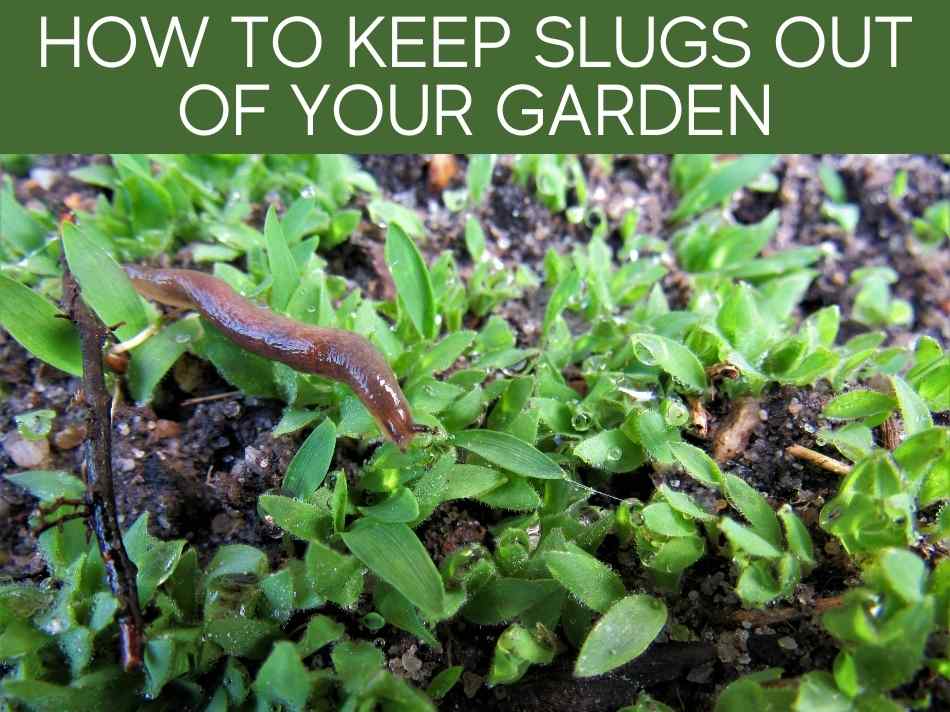
Garden slugs might be cute to some, but they are a gardener’s worst nightmare.
They eat away seedlings, food crops and vulnerable plants like hostas.
Though they’re active most of the year in many regions, spring is the perfect time for slugs to feed since there’s lots of fresh, green growth.
Keep slugs out of your garden by employing a series of different techniques, including growing resistant plants such as anise, fennel, rosemary and astrantia.
Encouraging beneficial wildlife, including toads, newts, hedgehogs and birds that prey on slugs, such as song thrushes will also help keep slugs out of your garden.
Employing these techniques in the garden will keep out slugs and their population will naturally decline.
How To Stop Slugs In Potatoes
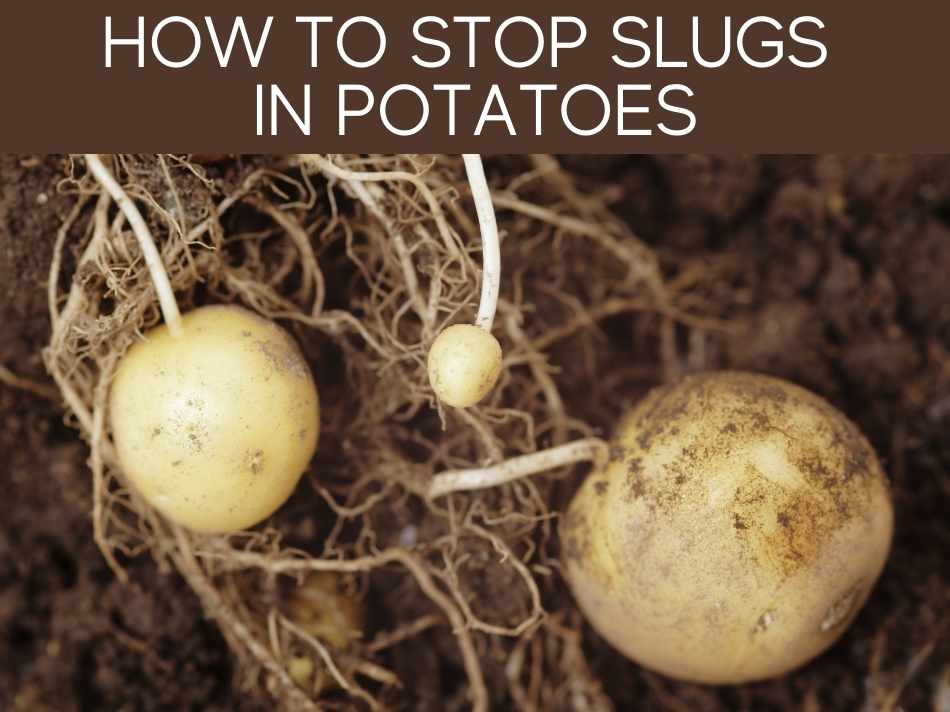
Potatoes are started in early spring, just around the time that slugs become the most active in your garden.
Since potatoes spread over a wide area in your garden, protecting them with copper barriers isn’t a feasible option.
If slugs are prevalent in the garden, grow early-maturing potato varieties since the longer they stay in the soil, the higher the chances of damage.
Additionally, iron-phosphate based slug baits can be used to save potatoes from slugs.
Water in the morning and just enough to keep the soil moist, giving it a chance to dry out before evening when slugs become the most active.
In mild winter regions, you can leave the tubers underground and harvest them as needed in the kitchen.
However, if you’re facing slug damage in the garden, it’s best to minimize the time that tubers spend in the soil and harvest them as soon as they’re ready.
How To Keep Slugs Out Of Strawberry Patch
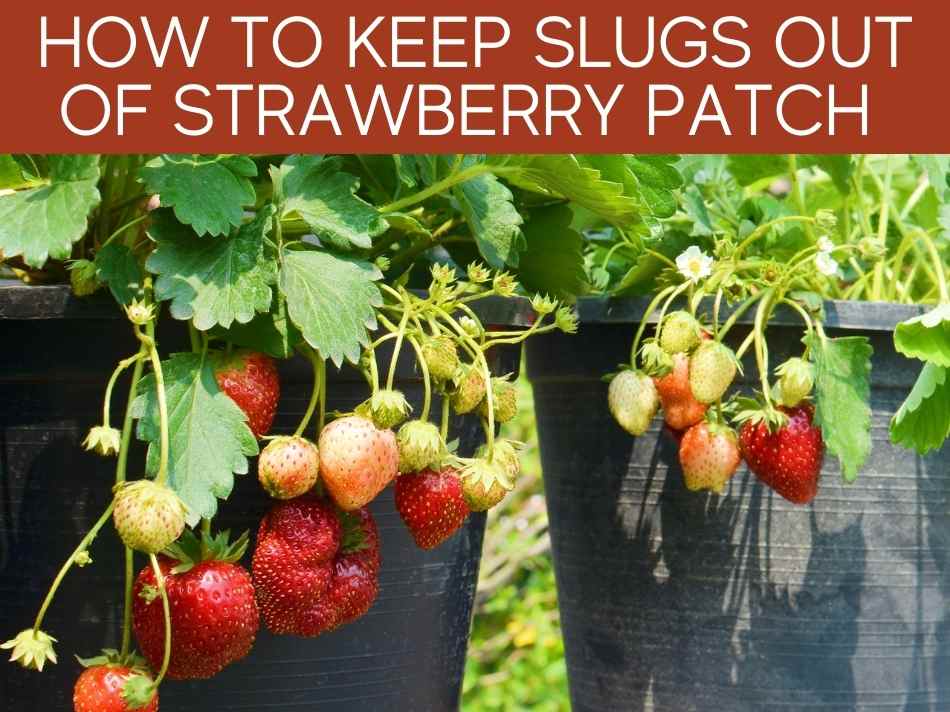
Slugs love your strawberries just as much as you do.
Slugs are a popular problem in strawberry patches, feeding on leaves and tender strawberry fruits just when they start to ripen.
In small-scale strawberry patches, constructing copper barriers around individual plants or the planting area is a good option to keep the slugs out.
Registered molluscicides (slug baits) for strawberry patches include Deadline M-Ps, Deadline Bullets (both are metaldehyde based) and Sluggo (iron-phosphate based).
Sluggo is more popular for slug control in strawberry patches since it’s low in toxicity and safer for humans, pets and wildlife in your garden.
In addition, it offers similar efficacy to metaldehyd based baits.
Be sure to check out the complete guide to keeping slugs out of strawberries.
How Do I Stop Slugs And Snails Eating My Vegetables
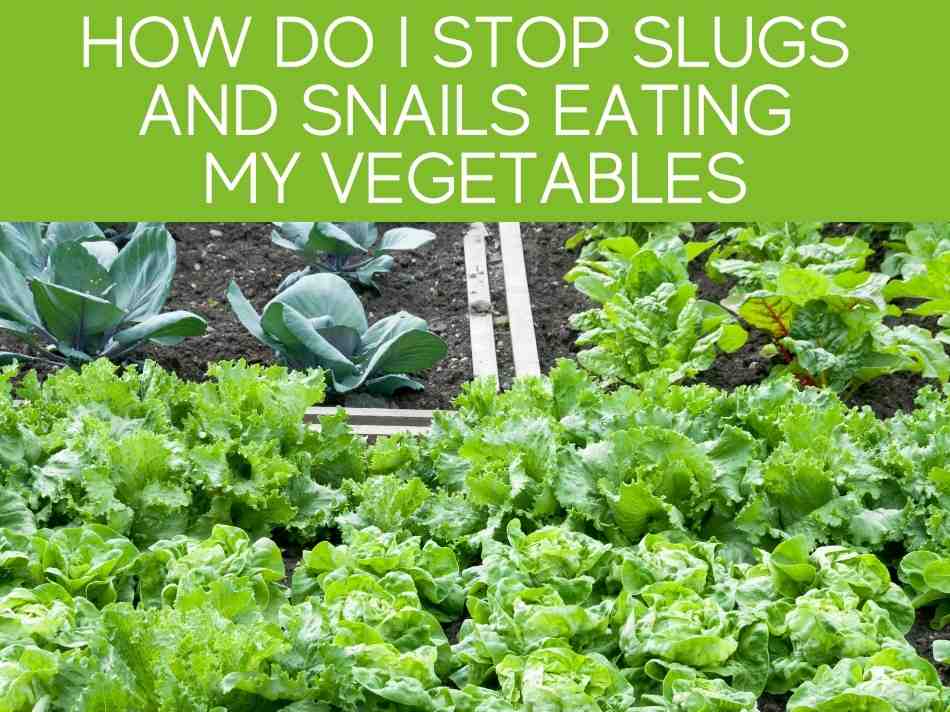
Slugs and snails love eating vegetable plants, cabbage, lettuce, tomatoes, and cucumbers being their favorites.
As seedlings and young plants, many vegetable crops are susceptible to slug attack.
Fortunately, gardeners have developed several methods to stop slugs and snails from eating the vegetable garden that they’ve put so much effort into growing.
Circling the plants with powdered material such as wood ash, diatomaceous earth, crushed egg shells, coffee grounds, coarse sand and pine needles have been known to stop slugs from damaging the vegetables.
Setting up beer traps is also a popular technique for stopping slugs from wreaking havoc in your vegetable garden.
Bury shallow dishes around the vegetable plants with their rims in line with the soil surface.
Fill the dishes with beer since snails and slugs are attracted to beer.
When these pests crawl into the dish lured to the beer, they’ll drown to their death.
As the dishes fill up with the slimy creatures, throw the slugs in the compost pile and start over.
You’ll want to check out our full article on using beer in the garden.
How To Keep Slugs Out Of My Vegetable Garden
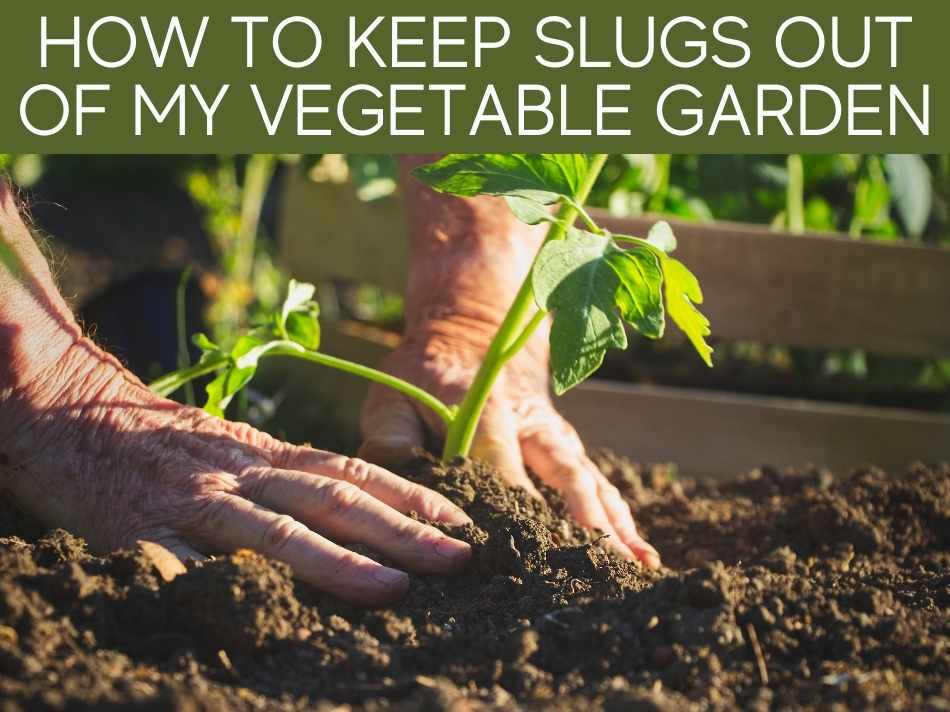
Slugs are a common problem at springtime in most vegetable gardens.
Fortunately, some simple techniques can help you keep these pests out and enjoy flawless, slug-free harvests.
Think about what slugs love the most and try to eliminate them (except your plants of course!) to discourage slugs from visiting your garden.
Loose mulches, such as hay or straw are favorite hiding spots for slugs.
Remove these mulches and use leaf mold or compost instead to prevent slugs from hiding under the mulches during the day and coming out to feed at night.
Grow plants that deter slugs either due to their texture, taste or strong smell to border your vegetable crops.
Slug-repellent plants include ginger, garlic, chives, ferns and geraniums.
Only water the garden when necessary to prevent wet spots where slugs and snails will love hanging out.
Additionally, if you have ducks and chickens in your backyard, let them roam around and eat freely in the garden.
They’ll hunt and eat slugs, snails and their eggs for you, helping you keep their population down.
How To Stop Slugs Eating Lettuce
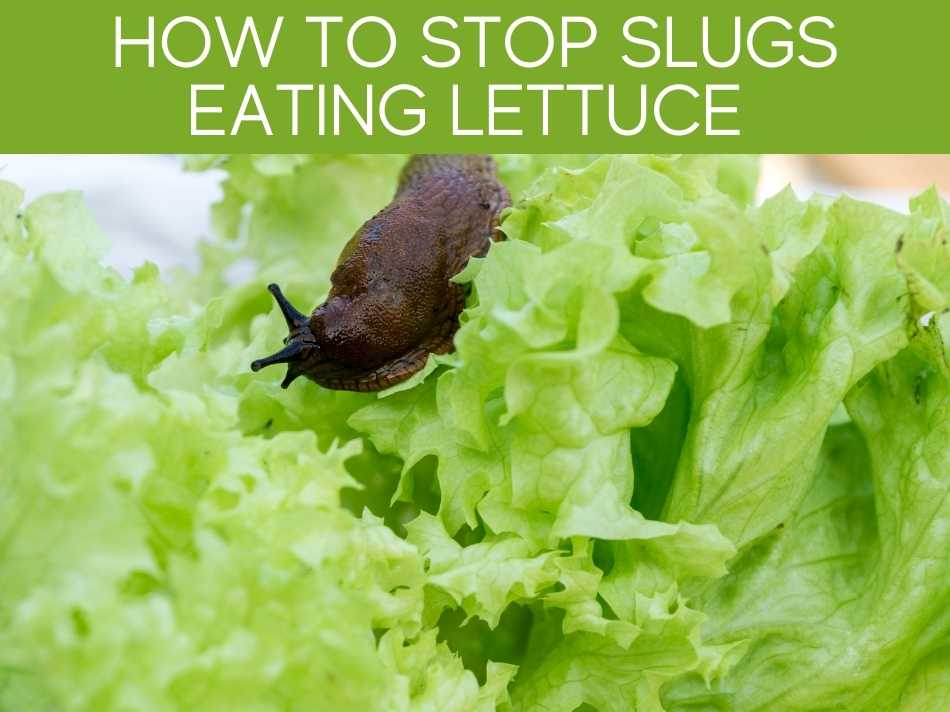
Lettuce are among the top favorites of slugs and snails.
There are a variety of organic and chemical techniques to stop slugs from eating your lettuce plants.
Gardeners tend to avoid chemical control on lettuce and other food crops because of the potential negative impact on health.
Among non-chemical slug control techniques, hand-picking is an effective one, though it’s not appealing to most.
Hand-picking slugs from the lettuce plants, collecting them in a container and throwing them out of your garden is best done in the evening when these pests are most active.
Alternatively, lining the perimeter of your lettuce garden bed with copper tape can also help cater the problem.
When the mucus of slugs and snails comes in contact with copper, an electric current is generated, making them experience a small shock and turn back.
Employing these methods can help eliminate slugs from your lettuce garden and enjoy fresh, leafy greens without any unsightly holes in them.
How To Stop Slugs Eating Bean Plants
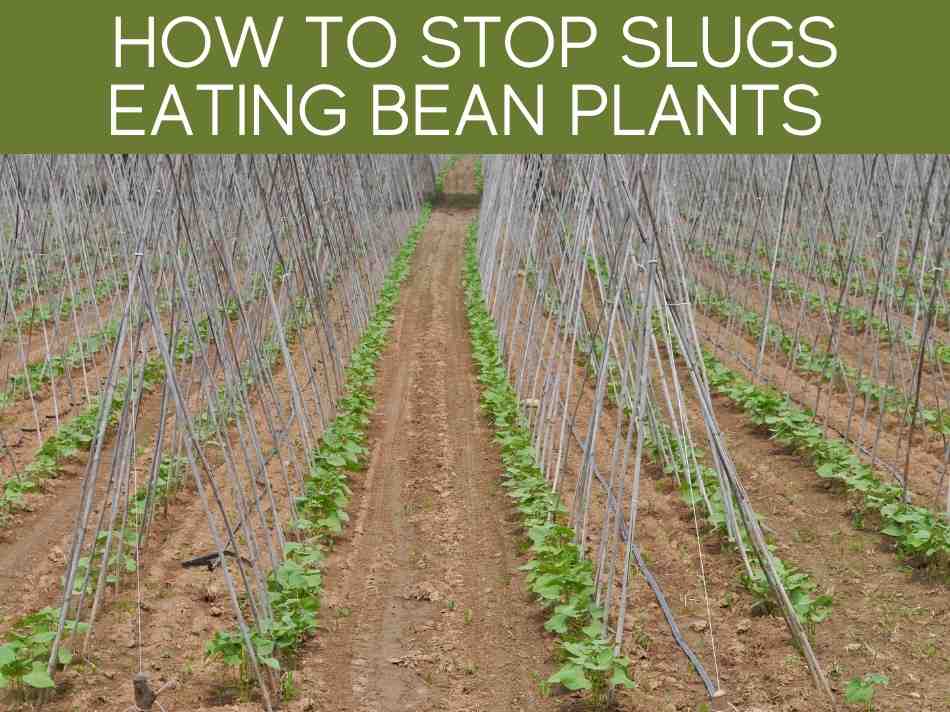
Slugs damage many vegetable crops, including bean plants.
Irregular holes in leaves and flowers and slimy, shiny mucus trails are clear symptoms that slugs have been bothering the bean crop.
Surround the young plants with fine, multi-purpose compost which makes it difficult for slugs to crawl over and reach the plants.
Since seedlings are most susceptible to slug damage, grow them in barriers made by cutting off the bottom of large plastic bottles and securing them into the ground with the plant growing inside the enclosure.
Remember to remove the bottle when the weather is warm since the plastic creates a greenhouse effect, trapping in a lot of heat.
How To Get Rid Of Slugs On Tomatoes
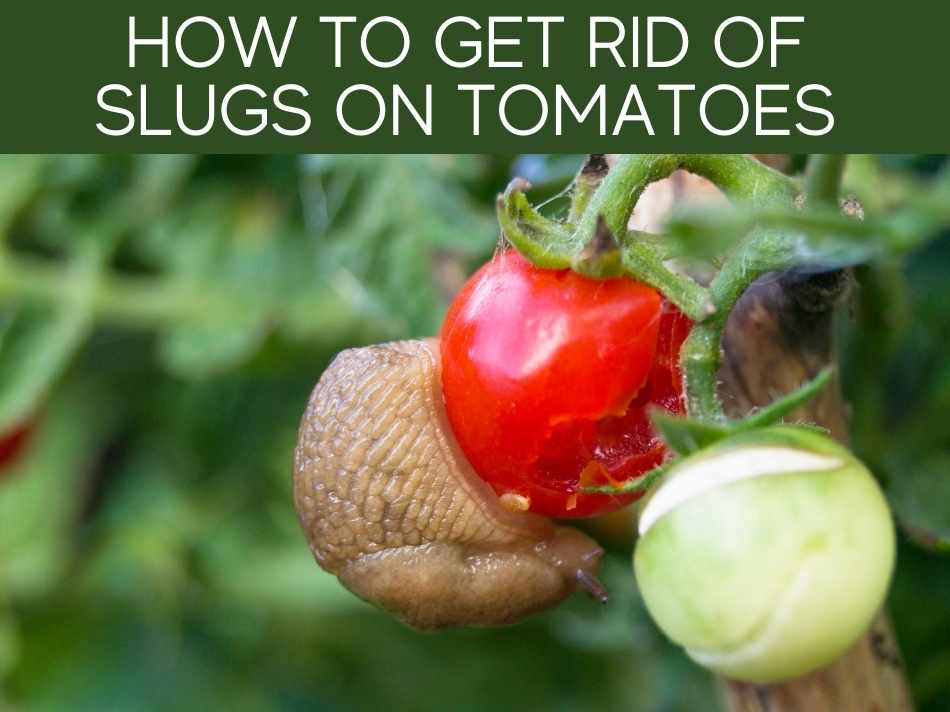
Tomato plants are among slugs’ favorite choices, especially young plants and seedlings.
Take serious steps to resolve the problem as soon as you notice symptoms of slug damage on your tomato plants or spot any slugs or snails in the vicinity.
Applying nematodes to the soil around tomato plants is an effective approach to getting rid of slugs.
These microorganisms act as parasites inside the slugs’ bodies as soon as the slugs ingest them.
These microorganisms are commercially available by the name of Nemaslug.
Mix the product with water and apply it to the soil to control slugs on tomato plants.
The soil temperature needs to be greater than 40°F for this treatment to work.
How To Rid Of Slugs Organically
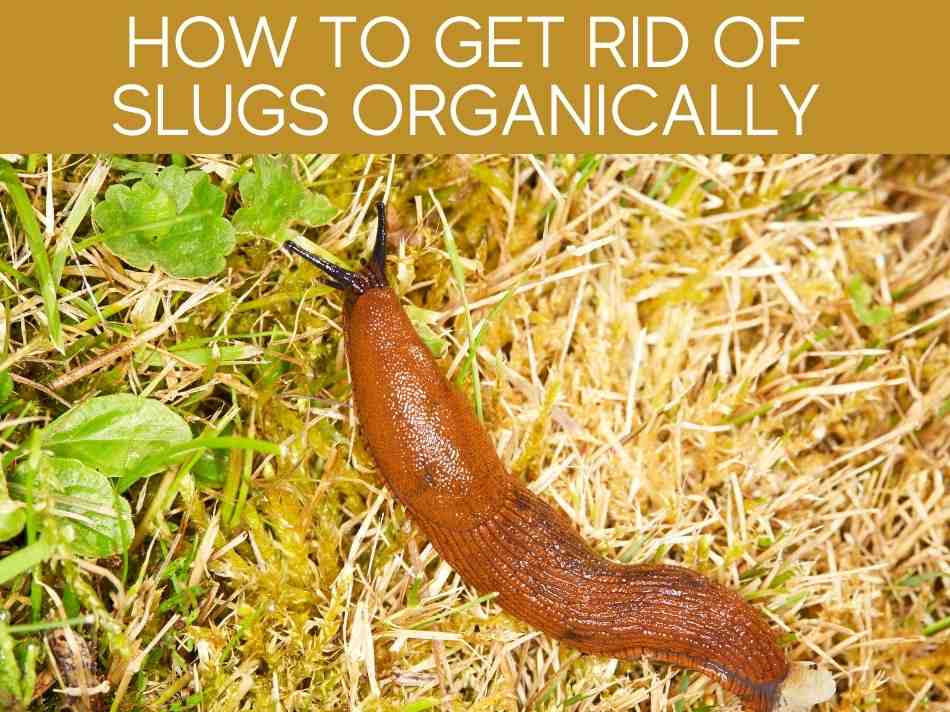
Getting rid of slugs is easy with organic techniques.
Instead of resorting to chemical pesticides, there are a combination of organic methods you can use to achieve a slug-free garden.
One of the most effective organic approaches to free the garden of slugs involves laying wooden boards (2×4’) between vegetable rows at dusk.
Flip over the boards the following afternoon when the slugs are enjoying shelter under them and throw the slugs far from the garden or dump them into the compost pile.
Repeat the process for as many days as necessary until the slug population declines and your crops are safe.
Check out the complete article on how to get rid of slugs naturally.
How To Get Rid Of Slugs In Potted Plants
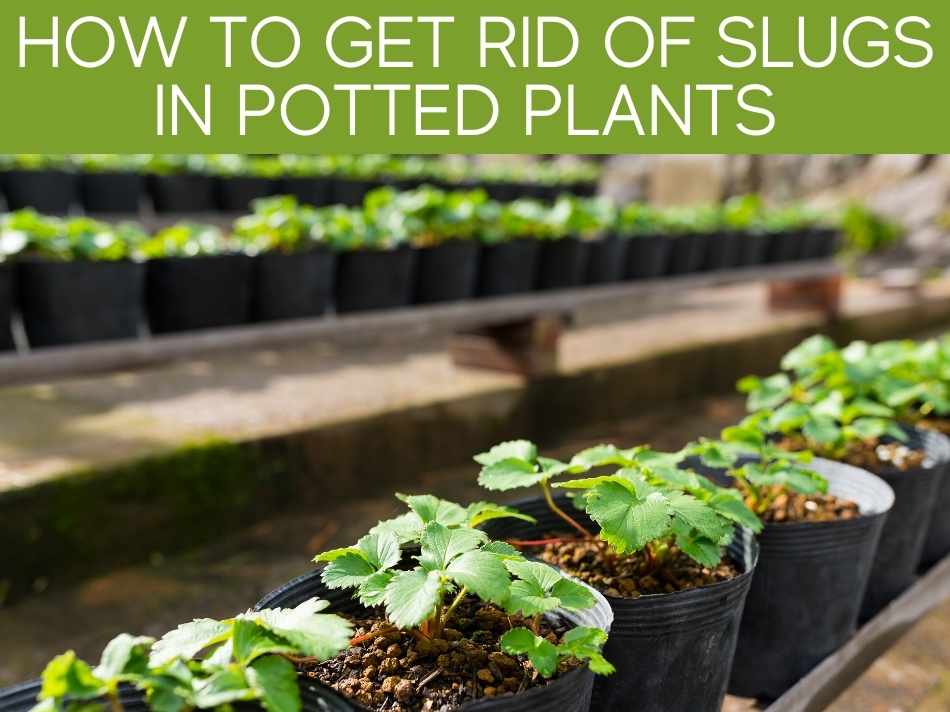
Potted plants are easier to protect against slugs than in-ground plants.
Slug proofing containers can be as simple as placing copper tape around the containers.
You can also purchase copper rings to fit around the pots or around the plants inside the pots.
Certain kitchen scraps, including crushed eggshells and coffee grounds are effective against slugs.
Sprinkle these scraps to surround the potted plants and slugs will avoid bothering your container garden.
Check out the full article on using coffee grounds in the garden.
How To Stop Slugs On Hostas
Slugs love eating hostas succulent leaves, leaving unsightly holes around the plants.
Grow hosta varieties with blue leaves since they are more resistant to slugs.
Sum and Substance is a particularly resistant hostas variety since the thicker foliage isn’t too attractive to slugs and snails.
Other than choosing the right variety, there are some additional methods you can use to solve the slug problem on hostas.
Water hostas in the morning to prevent moist conditions in the evening when slugs are most active.
Another approach is to rub vaseline around the rim of the hostas pot and sprinkle salt over it.
Vaseline will simply keep the salt in place while salt deters slugs, keeping your hostas safe.
Conclusion
There are several approaches to keeping slugs out of your garden.
Gardeners typically use a combination of different techniques before seeing any positive outcomes on their slug control efforts.
Choose the methods that suit your garden and the varieties of plants you are growing to enjoy a slug-free garden.
